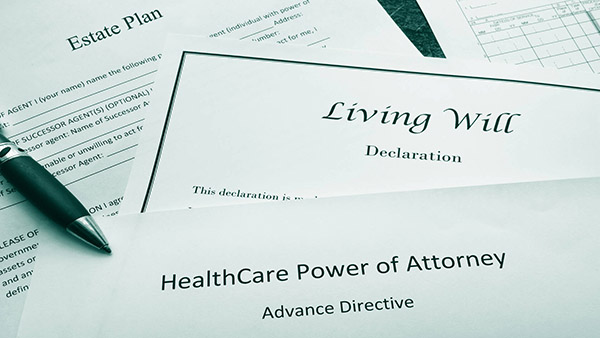Many people know how important an estate plan is, but only a few actually act on it. However, it’s essential to execute careful estate planning in order to save your family and loved ones from conflict and stress. Before it’s too late, organize your assets and properties and decide on your beneficiaries.
Doing estate planning also allows you to save a sizable portion of your money from getting taxed by the federal or state government. This allows your family to enjoy a larger portion of your assets. Therefore, if you want to secure a financial buffer for when you’re gone, you should start organizing and deciding who will benefit from your investments and insurance.
The good news is that estate planning can be executed in several straightforward steps.
- Hire An Attorney
Creating an estate plan begins with hiring a seasoned attorney. You need lawyers who know the ins and outs of estate planning and also demonstrate compassion by taking the time to understand your needs and concerns. Hence, it would be advantageous to choose law firms that provide customized legal services like Two Spruce Law P.C.
Even the slightest mistake in estate planning can devastate your family, finances, and taxable and non-taxable obligations. Therefore, every step of the process should be taken with careful and mindful preparation. The task of estate planning is detailed, time-consuming, and highly complex, so you should hire an attorney with experience and expertise to assist you.
Furthermore, there are many myths about estate planning that may lead you to make the wrong decisions and pitfalls that you may not be able to avoid. For clarification about estate planning misconceptions, check out this link: https://youtu.be/H8e7PA61JSM.
- Prepare A Will And/Or A Trust
Wills and living trusts are the foundation of an estate plan. Although you may be aware of these legal terms, it’s important to understand their implications. You can seek your attorney’s guidance when drafting these crucial documents.
It’s crucial to understand what their advantages and disadvantages are before choosing which one to go for. Nevertheless, your attorney can guide you in understanding which one is more beneficial for your family. The two options are discussed in detail below:
- Will
Wills are legal documents that direct how property should be distributed upon death. Under this crucial document, you’ll have to designate a personal representative who will administer the estate and distribute the assets to the named beneficiaries. A lot of responsibilities lie on the personal representative in this manner. However, it’s an organized way for your family to receive their fair share according to your judgment and decisions.
Even with a will, the probate process may take six months to two years. This is when the court recognizes and evaluates the will and checks the personal representative who needs to administer it. Personal representatives are responsible for settling all assets, liabilities, payables, and collectibles of the decedent or the person who passed away. During this time, both the lawyer and the personal representative should work closely to ensure that the will is followed through.
- Living Trust
On the other hand, a living trust is revocable, and many people prefer it over wills for this reason. In addition, a trust is more private and doesn’t usually come with a probate period after the property owner’s death. In fact, a trust is prepared while the grantor is still alive and well.
Alternatively, a trust may appoint a successor trustee to act in the client’s place should the client become incapacitated and unable to manage their assets. This trustee can be anyone from the family or organization whom the client or owner trusts significantly.
It’s important to note that trusts are created by settlors. Property is transferred into the trust for the settlors’ benefit during their lives and the remainder beneficiaries after they die.
In a nutshell, you can have both a trust and a will if you want to distribute your properties to your loved ones. The benefits of wills and trusts are very different, so it’s important to keep that in mind when comparing them. One isn’t necessarily better (or more helpful) than the other. To begin with, you should assess whether you are in a good position, what you are hoping to accomplish, and what your needs are. Only then will you be able to find the most appropriate and suitable solution for your family.
- Have A Durable Power Of Attorney Crafted
Ensuring your beneficiaries are taken care of is only one aspect of estate planning. In the event that you’re too sick to make decisions about your money or health care, your estate plan should make certain that your wishes are carried out.
This is where a durable power of attorney (DPOA) comes in. If you become too ill to manage your own money, someone else can handle it on your behalf. A person you trust is named in this document to manage your finances if you cannot do so.
Everyone needs one of the different types of powers of attorney at some point in their lives. But in estate planning, a durable power of attorney is highly suggested instead of the general power of attorney, as its effectiveness is longer. If you fail to create a DPOA and become incapacitated, the court-appointed guardian will file a detailed accounting and inventory of your assets. In such cases, the process becomes longer, more complicated, and quite expensive.
Therefore, to save time and avoid hassle for your family members, you should craft a durable power of attorney as early as possible during estate planning. However, a family member may not be the best choice for the person who will act as your financial proxy. Hence, it’s essential to evaluate and assess whoever is the most reliable and trustworthy person who can act on your behalf.
- Collate Your Assets And Liabilities
Together with your lawyer and accountant, it’s time to collate all your assets and liabilities. Check how liquid you are and what properties you own entirely. This can be accomplished by making a detailed list of your debts and assets. When computing your assets, ensure to include the following:
- Insurance policies
- Cash net worth
- Investments
- Time deposits
- Bank accounts
- Pieces of jewelry
- Art pieces
- Vehicles and equipment
- Real estate properties
- Other assets
As for your debts and liabilities, include these:
- Loans
- Personal debts
- Credit card balances
- Student loans
- Other forms of borrowing
After examining your assets and liabilities, your lawyer will be able to determine if any federal or state taxes are due from your estate.
- Be Familiar With Your Estate Tax Laws
Inheritance and estate taxes can be minimized through estate planning. This is usually the ultimate purpose why people undertake estate planning. However, while estate plans allow you to avoid hefty taxes, it doesn’t mean you can eliminate estate tax entirely. Hence, it pays to be thoroughly familiar with estate tax laws.
Estate tax laws vary from state to state, so ensure to inquire from your local taxation agency. Alternatively, you may ask your lawyer to explain this subject matter to you. There are also federal tax exemption limits that you need to be aware of. Fortunately, there are ways to reduce the amount of taxes your beneficiaries have to pay.
- Organize A Health Care Directive
In the event that a person becomes incapable of making health care decisions, a health care advance directive communicates their wishes. A living will and a power of attorney for health care are two types of advance directives. Using a living will, you can specify which medical procedures you want or do not want.
On the other hand, you can use a durable power of attorney to authorize someone to be your agent or proxy in case you’re too sick to speak for yourself, and this person must make sure that your health care wishes are carried out.
- Collate All The Paperwork
Finally, it’s time to collate all the necessary files and paperwork after knowing all the requirements and steps. Keep your estate-planning papers and financial records organized and accessible, so your executor can go through the process easily. You should store all these critical documents in a safe or vault with restricted access. Remember that aside from your lawyer and executor, your family and other people shouldn’t be permitted to go through your estate plans.
List your assets, your accountant and lawyer’s contact information, and the contents of your safe-deposit box. A safe, file cabinet or metal box that is lockable, waterproof, and fireproof can be used to store such documents at home. Otherwise, you can rent a safety box in a bank or another financial institution.
Conclusion
Estate planning is necessary for many reasons. It’s crucial if you want to ensure a well-organized distribution of your assets and properties to your loved ones upon your death. Following the steps above, you can go through your estate planning with fewer hassles and hurdles. Fortunately, estate plans can be revocable or modified. Hence, it’s wise to change your estate plan when circumstances or situations change.






